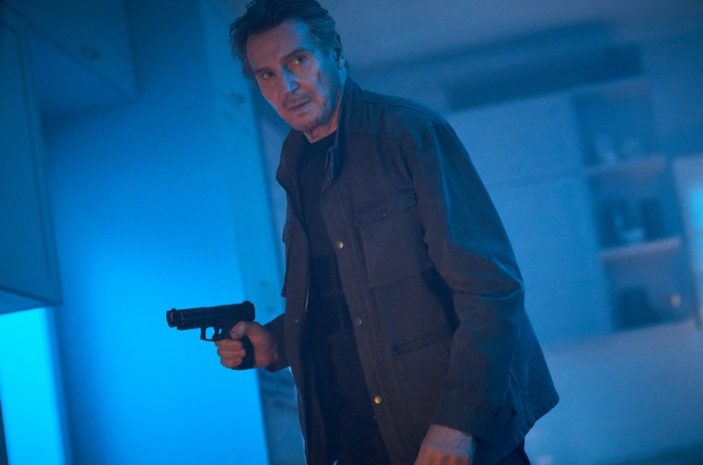
It’s almost hard to believe there was a time before Liam Neeson took an almost exclusive stance on the midrange-budgeted actioner where his character, usually an operative in some form or another, possessed enough of a skillset to inflict pain on an interchangeable villain. It’s been the actor’s go-to for almost 15 years, and whilst there’s usually a modicum of fun to be had in these outings, they certainly don’t extend him the courtesy of showcasing the thespian he’s so capable of being.
Although these line of films – which commenced with 2008’s Taken, arguably his most well known and received outing – don’t exactly challenge him, Neeson is still enough of a consummate professional to devote just enough enthusiasm to whichever role, affording the respective film a certain clout it otherwise may not deserve. His latest, Blacklight, doesn’t quite lean towards the brutality of his abilities the way the Taken series of films did, but it isn’t quite as outlandish as something like the mile high murder narrative of Non-Stop (2014) or The Commuter (2018) either, falling somewhere more middle of the road in terms of both stakes and spectacle.
Filmed predominantly in Melbourne, with Canberra subbing in momentarily for a car chase sequence (one of the film’s few actual action-momentum moments), Blacklight, which reunites Neeson with his Honest Thief helmer Mark Williams, puts our ageing, but no less capable, genre player in the shoes of FBI agent Travis Block – see, I told you he’d be an operative – who unwittingly uncovers a government conspiracy within his agency. Block’s specialty revolves around the removal of agents whose covers have been exposed, but he’s genuinely thrown by the shady dealings of his own organisation, and Neeson being Neeson means we are inherently on his side throughout, especially as he interchanges his investigation with the hopeful reconnection with his own daughter (Claire van der Boom) and granddaughter.
Despite such a plot that seems tailor made for distracting action sequences, Blacklight is a surprisingly sober affair in that department – save for the aforementioned car chase sequence. Neeson spends a great deal chasing down Taylor John Smith‘s stupendously named Dusty Crane, and Emmy Raver-Lampman‘s Mira Jones, an overly inquisitive journalist (that archetype never does well in these types of films), can’t seem to keep herself away from a good showdown, but Williams keeps things to a minimum, framing Blacklight in a more realistic light; or, at least as realistic a film dealing with such a narrative as this can be, opting for an emotional and political edge to offset its slight action beats.
Fans of Neeson’s earlier efforts are likely to be disappointed with Blacklight‘s lack of action output, but those that settled for Honest Thief, The Marksman, and The Ice Road, and embraced the formulaic mentality they adhered to, are likely to be equally satisfied, if not more so. Neeson is usually always the most committed performer in these films and he keeps this suitably engaging, so if you remove expectation then Blacklight‘s simplistic, almost 1990’s-feeling lightweight actioner should provide undemanding escapism.
![]()
![]()
![]()
![]()
![]()
THREE STARS (OUT OF FIVE)
Blacklight is screening in Australian theatres from February 10th, 2022.
